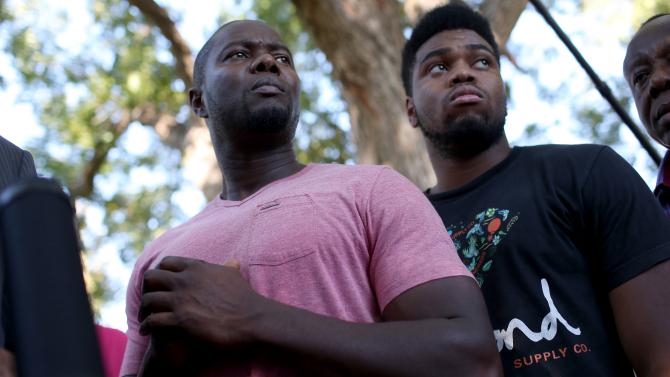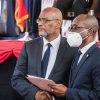
While the Ebola narrative continues to unfold, the nephew of Thomas Eric Duncan, the first person to be diagnosed with the disease on U.S. soil, has penned a narrative of his own.
“He was a man of color with no health insurance and no means to pay for treatment, so within hours he was released,” Josephus Weeks wrote of his uncle in a Tuesday op-ed for the Dallas Morning News.
Weeks blasted Texas Health Presbyterian Hospital, where his uncle was first seen on Sept. 26, when he complained of stomach pains and posted a 103-degree temperature. Hours after arriving, he was sent home. He returned two days later by ambulance and was quarantined until the day he died. Weeks believes that his uncle’s death was due to the hospital’s “ignorance, incompetence and indecency,” which, he writes, “has yet to be explained.”
Texas Health Presbyterian Hospital released a statement last week, saying that it “provided Mr. Duncan with the same high level of attention and care that would be given any patient, regardless of nationality or ability to pay for care.”
Weeks finds that to be far from his truth.
“From his botched release from the emergency room to his delayed testing and delayed treatment and the denial of experimental drugs that have been available to every other case of Ebola treated in the U.S., the hospital invited death every step of the way,” Weeks wrote.
Weeks says that the family learned of Duncan’s death from the news, not the hospital, and that those in charge of Duncan’s care did little to help the family communicate with him. He said Duncan was “a victim of a broken system” and wondered why his uncle’s Ebola tests were said to have taken three to seven days to yield results, yet a Texas officer’s test took 24 hours.
Weeks wrote that his uncle did not help a pregnant woman with Ebola, as has been widely reported, and added that his uncle was a “cautious” man who knew the risks of living in Liberia amid the crisis.
“Our nation will never mourn the loss of my uncle, who was in this country for the first time to visit his son, as my family has,” Weeks wrote. “But our nation and our family can agree that what happened at Texas Health Presbyterian Hospital Dallas must never happen to another family. ”















